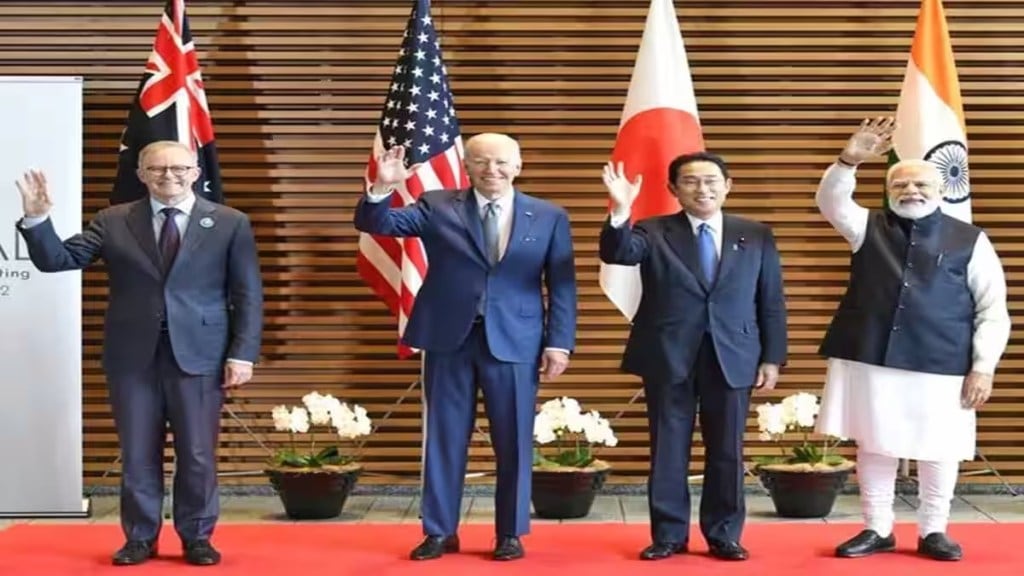The QUAD member countries have stated their firm support for a free and open Indo-Pacific region that promotes inclusivity and resilience.
On the sidelines of the 78th United Nations General Assembly, key representatives from the United States, Australia, India, and Japan met in New York City to reinforce their commitment to international cooperation.
The meeting was aimed to emphasize their dedication to upholding established rules, norms, and standards while further deepening cooperation within the Quad framework.
According to the joint statement issued at the end of the meeting, the members expressed their deep concern regarding the conflict in Ukraine and its devastating humanitarian consequences. They called for a just and lasting peace in Ukraine in accordance with international law and the UN Charter. They also voiced their support for global food security initiatives.
Their shared vision, as articulated in Hiroshima on May 20, 2023, envisions an Indo-Pacific characterized by peace, prosperity, stability, security, and a commitment to settling disputes in accordance with international law.
They strongly uphold fundamental principles such as freedom, the rule of law, sovereignty, territorial integrity, and peaceful conflict resolution. They oppose any unilateral actions that seek to alter the status quo, instead emphasizing responsible competition within the Indo-Pacific.
Furthermore, the Quad nations reiterated their commitment to the United Nations Charter and called upon all nations to adhere to its principles, including refraining from threats or the use of force against a state’s territorial integrity or political independence. They stressed the paramount importance of international law as a foundation for stability and equitable treatment of all member states.
According to the statement The Quad’s dedication extends to the full implementation of the 2030 Agenda for Sustainable Development and the achievement of all Sustainable Development Goals (SDGs), underscoring their integrated and indivisible nature, covering economic, social, and environmental dimensions. They emphasize that the United Nations plays a central role in supporting countries in their pursuit of these goals. The Quad’s actions in the Indo-Pacific contribute to advancing the 2030 Agenda by delivering sustainable economic and social benefits that resonate with regional partners.
The Quad members expressed their support for a comprehensive reform within the United Nations, including an expansion of both permanent and non-permanent seats on the UN Security Council. They advocated for a more representative, transparent, effective, and credible UN Security Council to address international system subversion and promote accountability.
They also talked about an open, stable, and prosperous Indo-Pacific region bolstered by effective institutions. And expressed unwavering support for ASEAN’s unity and centrality, the ASEAN-led regional architecture, and the practical implementation of the ASEAN Outlook on the Indo-Pacific. In line with the objectives of the 2050 Strategy for the Blue Pacific Continent the members expressed their support for Pacific-led regional organizations and supporting Pacific Island countries.
In terms of practical cooperation, the Quad nations launched initiatives focused on climate change, clean energy supply chains, infrastructure development, cybersecurity, and pandemic preparedness. They highlighted the importance of leveraging collective expertise to tackle global challenges, including disinformation and countering the use of emerging technologies for terrorist purposes.
Within the maritime domain, according to the statement the Quad nations are actively working to enhance security and promote maritime domain awareness in partnership with regional allies. And extended their commitment to providing humanitarian assistance and disaster relief when needed.
Concerning North Korea, the Quad nations condemn destabilizing ballistic missile launches and the pursuit of nuclear weapons in violation of UN Security Council resolutions. They highlighted the importance of denuclearization, addressing proliferation, and resolving the abductions issue.
The Quad nations remain deeply concerned about the crisis in Myanmar and call for an end to violence, the release of detainees, unhindered humanitarian assistance, dialogue, and a return to Myanmar’s path towards inclusive federal democracy.
In conclusion, the Quad Foreign Ministers reaffirm their commitment to advancing the vision set by their Leaders, focusing on concrete outcomes that benefit the Indo-Pacific region. They look forward to their next in-person meeting in Japan in 2024.


